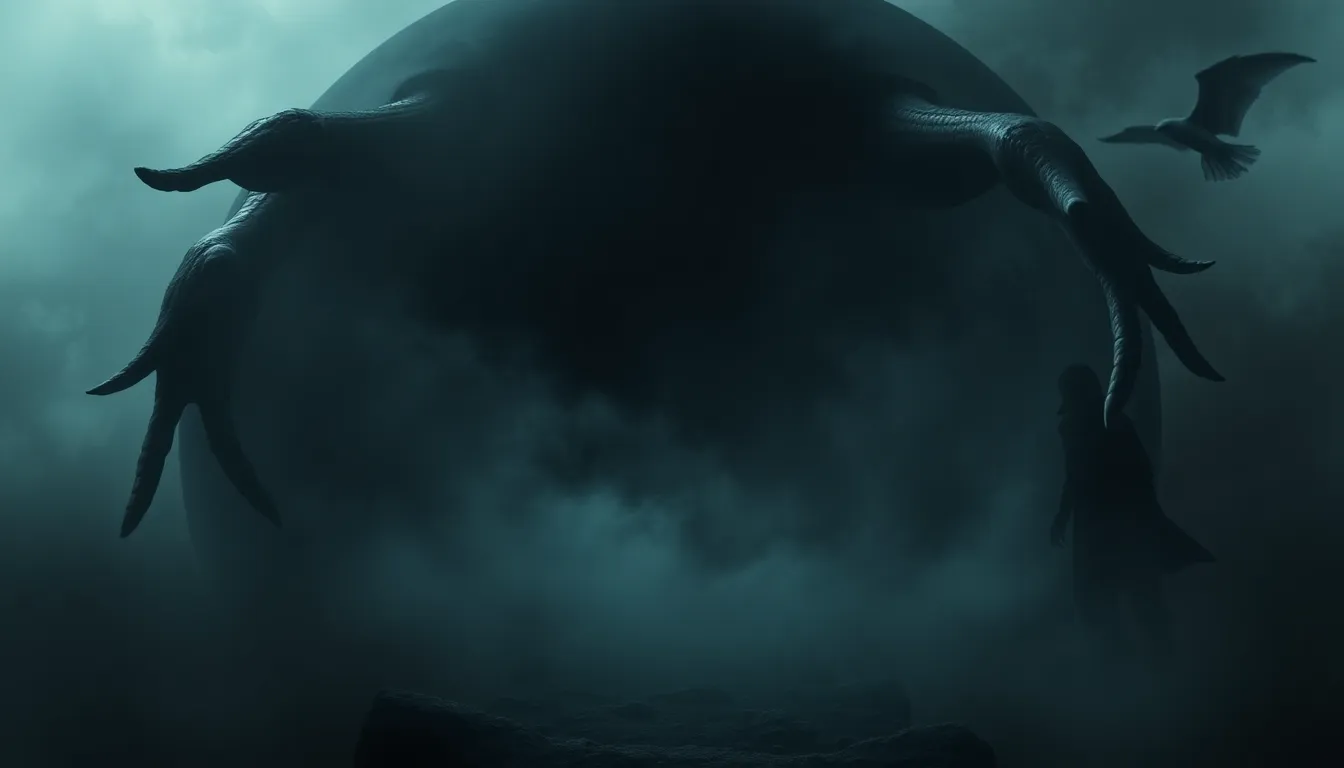The Haunting Prophecies of Edgar Allan Poe: Genius or Madness?
Introduction: The Enigma of Edgar Allan Poe
Edgar Allan Poe remains one of the most enigmatic figures in American literature. Born in 1809, Poe’s life was marked by personal tragedy, poverty, and a constant battle with mental health issues. Despite these challenges, he produced a remarkable body of work that continues to captivate readers and inspire writers. His contributions to the genres of gothic fiction, detective stories, and poetry have solidified his status as a literary genius.
Among his many complex themes, the notion of prophecy emerges as a particularly intriguing aspect of Poe’s work. This article explores the prophetic elements in his writings and delves into the debate surrounding whether these insights stemmed from a place of genius or madness.
Poe’s Background: The Man Behind the Madness
Poe’s early life was fraught with challenges. Orphaned by age three, he was taken in by John and Frances Allan, though he never formally adopted. His tumultuous relationship with Allan, particularly regarding finances and his aspirations, led to significant instability in his life.
Personal tragedies, including the deaths of his young wife, Virginia, and his mother, profoundly influenced Poe’s writing. These experiences fueled his exploration of themes related to mortality and despair. Furthermore, Poe struggled with mental health issues throughout his life, which some scholars argue were exacerbated by alcoholism and depression.
The Literary Landscape of the 19th Century
To understand Poe’s work, it is essential to consider the literary context of the 19th century. The Romantic movement, with its emphasis on emotion and nature, as well as the Gothic tradition’s focus on horror and the supernatural, heavily influenced Poe’s writing. He was part of a literary milieu that often reflected the societal fears and anxieties of the time, including the rapid changes brought about by industrialization and the uncertainties of modern life.
Poe’s contemporaries viewed literature as a means of prophecy, reflecting societal issues and individual psyches. This perspective allowed for a space where writers like Poe could explore dark themes and the complexities of the human experience.
Themes of Death and the Macabre in Poe’s Works
Death, decay, and the supernatural are recurring themes in Poe’s oeuvre. From the haunting atmosphere of “The Tell-Tale Heart” to the eerie setting of “The Fall of the House of Usher,” Poe’s exploration of mortality is both profound and unsettling. These themes often serve as a backdrop for prophetic visions, reflecting the fears of his time and perhaps his own struggles with death and mental illness.
- Death: Poe’s fixation on death often manifests in his characters’ obsessions and the tragic outcomes of their pursuits.
- Decay: The imagery of decay symbolizes the inevitable decline of both the individual and society.
- Supernatural elements: These serve as metaphors for psychological states and societal anxieties, blurring the line between reality and madness.
Poe’s Notable Prophetic Works: A Closer Look
Several of Poe’s works exhibit striking prophetic qualities, suggesting an uncanny ability to foresee future events or societal shifts. In “The Masque of the Red Death,” the inescapable nature of death is portrayed through the allegorical figure of the Red Death, which ultimately claims even the wealthy and powerful. This work highlights the futility of attempting to escape mortality.
Another notable example is “The Fall of the House of Usher,” where the themes of family decay and madness culminate in a haunting climax that can be interpreted as a reflection on the fragility of human existence.
In “The Narrative of Arthur Gordon Pym,” Poe’s exploration of the unknown and the uncanny hints at future maritime disasters, showcasing his ability to tap into societal fears that would later materialize. Literary critics have examined these prophetic interpretations, suggesting that Poe’s insights were not mere coincidences but reflections of deeper truths about the human condition.
Poe’s Influence on Future Literature and Culture
Edgar Allan Poe’s literary legacy extends far beyond his lifetime, greatly influencing modern literary movements and genres. His exploration of psychological horror paved the way for later writers, including H.P. Lovecraft and Stephen King, who drew inspiration from Poe’s themes and narrative styles.
Moreover, Poe’s influence permeates popular culture, evident in films, music, and even graphic novels. Modern interpretations of his work often highlight the prophetic nature of his themes, showcasing their relevance to contemporary societal issues.
Psychological Perspectives: Genius versus Madness
The intersection of creativity and mental illness has long intrigued scholars and psychologists. Many theories suggest that the intense emotional experiences associated with mental health struggles can fuel artistic expression. Poe’s life exemplifies this dichotomy, as his genius in crafting haunting narratives often paralleled his tumultuous mental state.
Case studies of other artists and writers, such as Vincent van Gogh and Sylvia Plath, reveal similar patterns of brilliance intertwined with mental health challenges. Analyzing Poe’s genius through the lens of his mental health raises important questions about the nature of creativity and the often-destructive forces at play within the artistic mind.
Cultural Responses to Poe’s Prophetic Nature
Society’s reaction to Poe’s themes has evolved over time. Initially, his works were met with mixed reviews, but over the decades, a public fascination with his exploration of the macabre and the mysterious has solidified his reputation. Folklore and urban legends surrounding Poe have also contributed to his legacy, with tales of his supposed prophetic abilities captivating audiences.
This cultural response highlights the enduring nature of Poe’s work and its ability to resonate with the collective consciousness, prompting discussions about the nature of prophecy and the human experience.
Debating Poe’s Legacy: Genius, Madness, or Both?
Scholarly perspectives on Poe’s legacy reveal a spectrum of interpretations. Some argue that his prophetic insights were a manifestation of his genius, allowing him to probe the depths of human consciousness and societal fears. Others contend that his struggles with mental illness colored his perceptions, leading to distorted visions that fueled his creativity.
Ultimately, the debate surrounding Poe’s genius and madness invites readers to reflect on the complexities of the human experience. Whether viewed as a genius or a madman, Poe’s work undeniably holds a mirror to the darkest corners of the human psyche, offering timeless insights that continue to resonate with audiences today.



